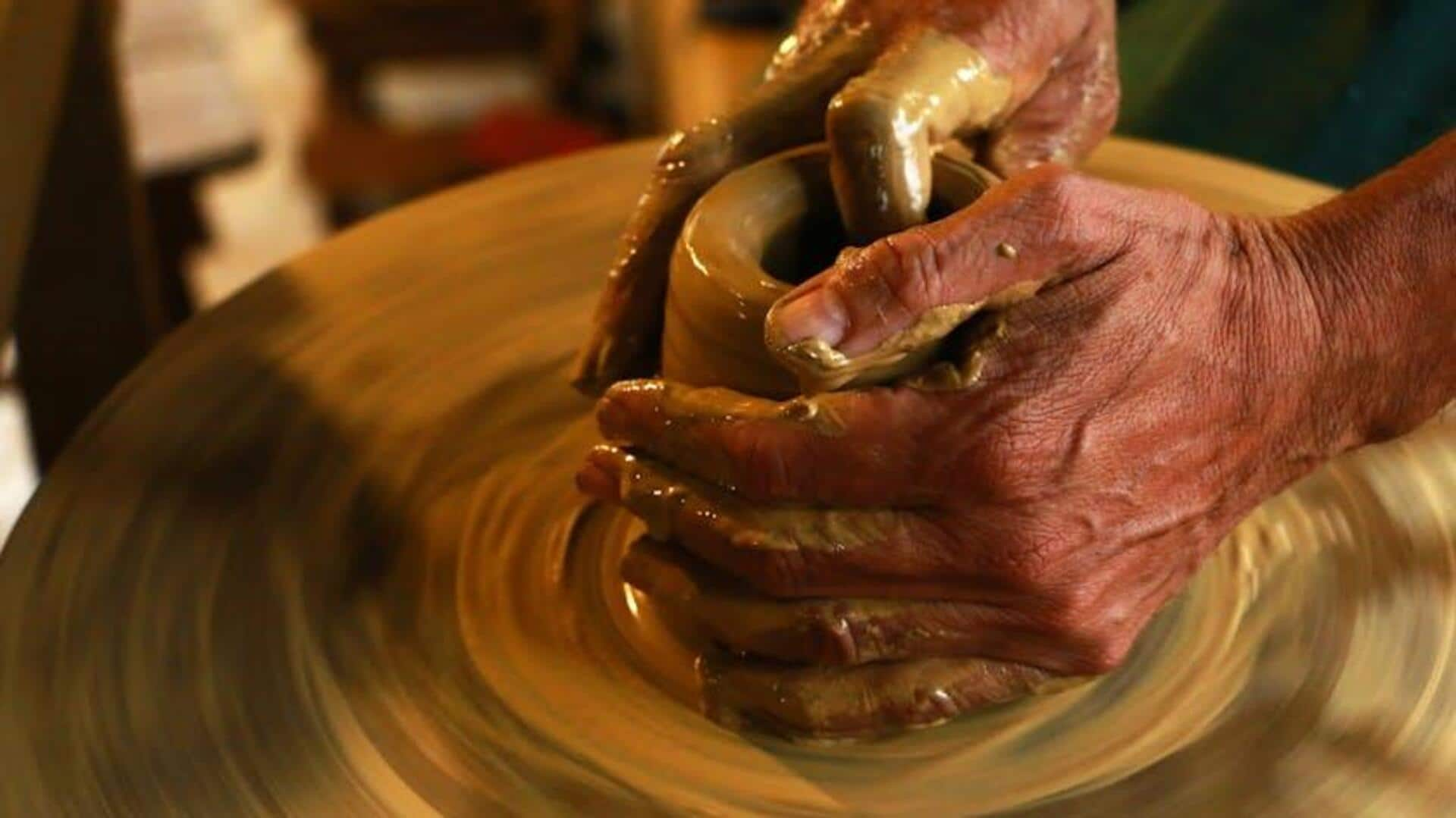
A beginner's guide to pottery
What's the story
Pottery, the ancient craft of shaping clay into functional or decorative items, has been practiced for thousands of years and remains a popular hobby and profession today. Working with clay lets you express creativity while producing unique pieces. Whether you want to make pottery as a hobby or pursue it professionally, knowing the basics of pottery can help you get started on this rewarding journey.
Types of clay
Understanding different types of clay
Pottery also involves different types of clays, each with distinct properties. Earthenware, which is perfect for beginners, has a low firing temperature and is easy to work with. Stoneware is more durable and can be used for functional objects like plates. Porcelain, which needs higher firing temperatures, gives the most elegant pieces. Knowing these differences helps potters choose the right clay for their work.
Pottery tools
Essential tools for pottery making
To get started with clay crafting, you'll need some tools. A potter's wheel is commonly used to shape symmetrical pieces, while hand-building methods only need basic tools such as rolling pins, carving tools, and sponges. Kilns are required for firing finished pieces to set them permanently. Investing in quality tools can improve your pottery experience by making the whole process smoother and enjoyable.
Techniques
Basic techniques in pottery crafting
Pottery is a combination of techniques like wheel throwing, hand building, and glazing. Wheel throwing is a skillful manipulation of clay on a spinning wheel to form symmetrical bowls or vases. Hand building methods include pinching, coiling, or slab construction, without a wheel. Glazing adds color and texture after shaping the piece. It also seals the surface, making it waterproof.
Beginner tips
Tips for beginners starting out
For beginners, it is wise to start small. It gives you a chance to practice without a big commitment or cost. Joining local classes gives you the help of seasoned instructors and also connects you with other pottery enthusiasts. Above all, be patient when learning a new skill. See mistakes as opportunities for growth and not roadblocks on your creative path.